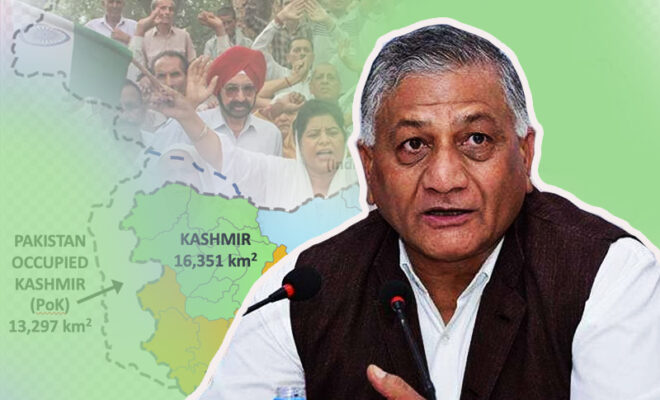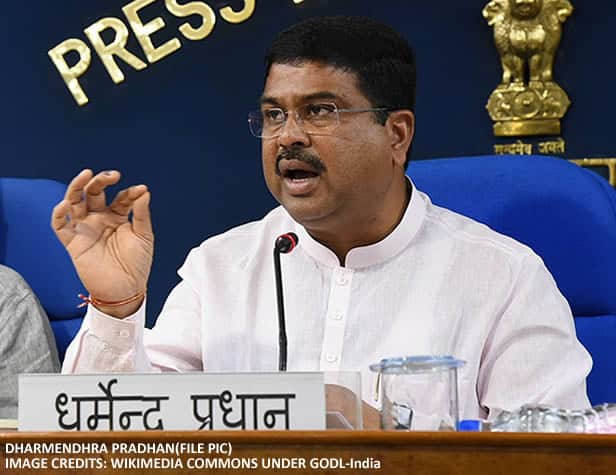Will PoK Really Merge Into India, Or Is It Already A Part of India?

Former General & current Union Minister VK Singh said, “PoK will merge with India on its own, just wait & watch.” Is it really possible or just fake claims?
PoK, which stands for Pakistan-Occupied Kashmir, is a region that India considers an integral part of its territory. However, it’s currently under Pakistan’s or terrorists’ control. The issue of PoK has been a longstanding point of contention between India and Pakistan.
India’s position is that PoK has always been, is, and will remain an integral part of India. This is rooted in historical and legal claims. On the other hand, Pakistan claims PoK as part of its territory.
So, whether or not PoK will merge with India or remain under Pakistan’s control depends on the geopolitical situation and negotiations between the two countries.
It’s important to note that the situation is complex, and any change would likely involve diplomatic discussions, international agreements, and, ideally, a peaceful resolution. But India will have to take strict actions or may follow diplomacy if required.
Why Does Vk Singh Believe That PoK Will Automatically Merge With India Soon?
General VK Singh’s statement reflects a perspective held by some in India that, over time, the people of PoK might choose to align with India by themselves. Here are 3 major factors, behind this statement:
1. Historical Claim
India asserts that PoK has a historical connection to the Indian state of Jammu and Kashmir. When India clinched independence from British rule in 1947, the princely state of Jammu and Kashmir had the option to join either India or Pakistan.
Jammu and Kashmir decided to join India. But Pakistan attempted to capture some of its regions including PoK, so that it can enjoy the valuable resources of those regions. This action was temporary and unethical, thus PoK needs to reunify with India now.
2. Pakistan Can’t Handle Crises
Pakistan is currently facing significant crises, including political turmoil, economic challenges, high inflation rates, and a substantial burden of international debts.
Consequently, it appears to be struggling to manage its own territories effectively. Given these circumstances, it raises questions about Pakistan’s capacity to handle Pakistan-Occupied Kashmir (PoK).
As a result, not only the residents of PoK but also many citizens of Pakistan express a desire to merge their regions with India. They believe that such a move would provide them with the opportunity to enjoy a better quality of life.
3. International Pressure
Geopolitical dynamics can shift over time. Diplomatic efforts, international pressures, and changes in the political landscape can influence the resolution of territorial disputes.
Pakistan can’t announce this officially but it already knows that the PoK is an integral part of India, which never came into its territory.
Also Read:- Is Rahul Gandhi’s Europe Trip Led Congress Losing Its Leaders?
The same thing is also realized by other international bodies. Thus they stopped supporting Pakistan. Instead, they started supporting India as the country is emerging as a new superpower at the international stage.
In addition to that, India has clearly warned the so-called superpower countries that they don’t need to interfere in the internal affairs of India.
Thus Pakistan is facing tremendous international pressure along with India’s diplomacy.
Why Did EAM S. Jaishankar Says That PoK Is Already A Part Of India?
S. Jaishankar, India’s External Affairs Minister, has consistently stated that PoK is always a part of India. He says this because historically, when India and Pakistan were divided in 1947, the princely state of Jammu and Kashmir had the choice to join either country.
As stated above, Jammu and Kashmir had opted to be a part of it and joined India, so India claims the entire region, including PoK. PoK is also legally part of India’s territory according to its constitution and several historical evidences.



